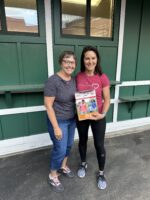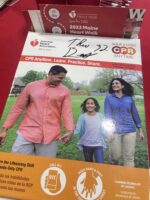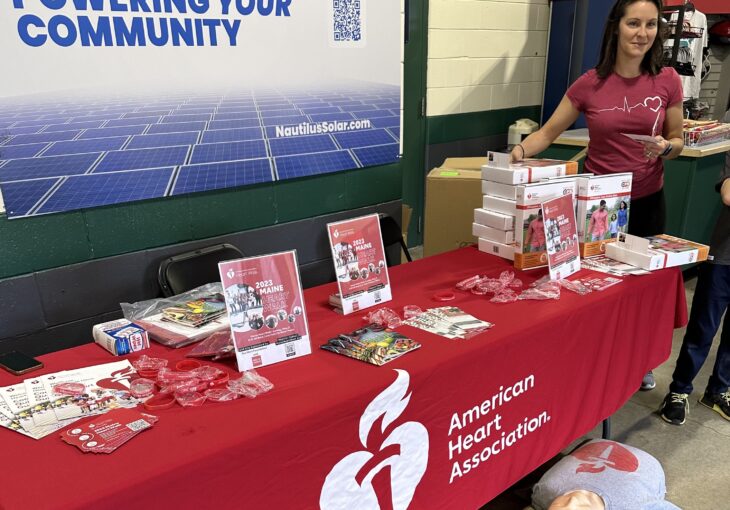Hands-Only CPR can double or triple survival rates for out-of-hospital cardiac arrest

Christine Lord and Lena Minervino
It’s the gift that keeps on giving: Hands-only CPR. To ensure people in Maine are prepared if someone goes into cardiac arrest, the American Heart Association, the leading voluntary health organization devoted to a world of longer, healthier lives, hosted free Hands-Only CPR demonstrations at the May 12th Portland Sea Dogs game.
Christine Lord, a nurse and Clinical Research Coordinator with MaineHealth, provided Hands-Only CPR demonstrations to gamegoers where participants could practice chest compressions on manikins. In addition, 80 guests took home a free American Heart Association Adult and Child CPR Anytime® Kit, sponsored locally by The Mimi Foundation and Wells Fargo.

Kits were signed by Portland Sea Dogs Pitcher Theo Denlinger!
These reusable, at-home CPR training kits contains everything a person needs to learn the lifesaving skills of CPR, AED awareness, and choking relief in about 20 minutes. The kit allows people to learn in the comfort and privacy of their home or workplace and is completely portable, so it is easy to share with family and friends.
“We are so grateful to our local supporters – the Portland Sea Dogs, The Mimi Foundation and Wells Fargo – for helping us to get these lifesaving kits out into our community,” said Lena Minervino, an Association Development Director in Maine. “Our hope is that those who receive them will share them with other family members and friends to increase the number of people who can feel confident to jump in an emergency.”
In the US, cardiac arrest is a leading cause of death. Each year, more than 350,000 cardiac arrests occur outside the hospital, and about 20 percent occur in public places. Cardiac arrest occurs when the heart stops beating and can no longer pump blood to the brain or vital organs. Within seconds, a person becomes unresponsive and may not be breathing. When a person has a cardiac arrest, survival depends on immediately receiving CPR from someone nearby.
Hands-Only CPR is recommended for bystanders to use when someone suddenly collapses from cardiac arrest to keep the heart pumping until professional medical help arrives. Hands-Only CPR has two easy steps:
- First, call 911 when you see a teen or adult collapse suddenly.
- Then, push hard and fast in the center of the person’s chest until professional help arrives. Hands-Only CPR has been shown to be as effective as conventional CPR for cardiac arrest at home, at work or in public.
For more information, visit HandsOnlyCPR.org.
